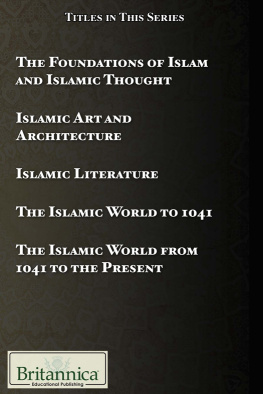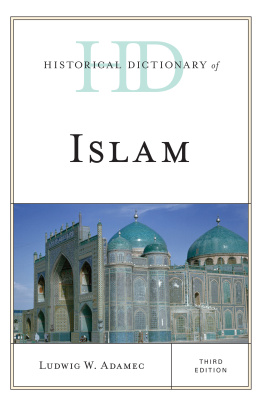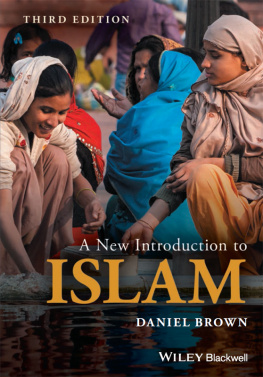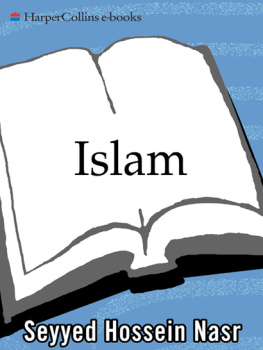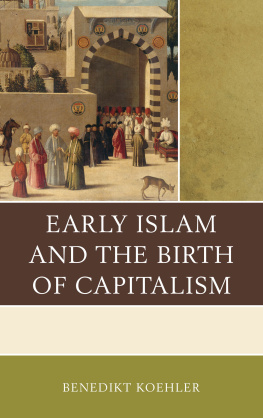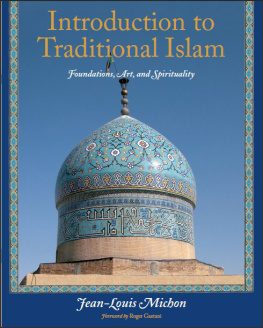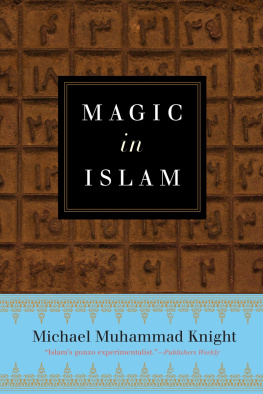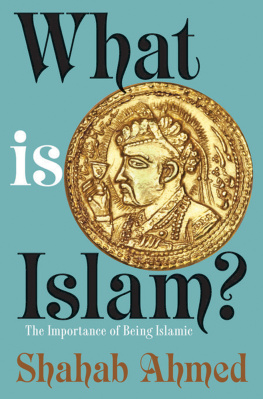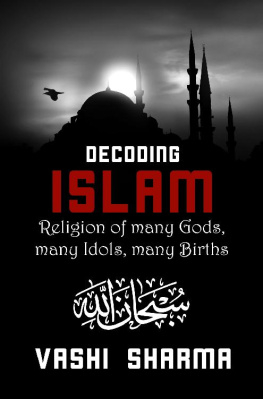Routledge Revivals
Medieval Islam
The history of Islam runs without a break from its origins to the present. Therefore, understanding medieval Islam gives us a much clearer comprehension of the modern world.
First published in 1979, this concise account of the Islamic world in the middle ages covers a vast territory, stretching from Morocco and Spain to India and Turkestan. It discusses the teachings of Islam, its theology, mysticism and philosophy, and examines the relation between Islam and political order, particularly the concepts of power and the organisation of government. It discusses Islams view of the social order and concludes by looking at the urban centres in which Islamic civilisation developed, describing the towns themselves and the various forms of Islamic art.
This book will be of interest to those studying medieval and Islamic history.
First published in 1979 as LIslam Mdival
by Presses Universitaires de France
This translation first published in 1983
by Routledge & Kegan Paul Ltd
This edition first published in 2017 by Routledge
2 Park Square, Milton Park, Abingdon, Oxon, OX14 4RN
and by Routledge
711 Third Avenue, New York, NY 10017
Routledge is an imprint of the Taylor & Francis Group, an informa business
1979 PUF/Humensis, LIslam Mdival
All rights reserved. No part of this book may be reprinted or reproduced or utilised in any form or by any electronic, mechanical, or other means, now known or hereafter invented, including photocopying and recording, or in any information storage or retrieval system, without permission in writing from the publishers.
Publishers Note
The publisher has gone to great lengths to ensure the quality of this reprint but points out that some imperfections in the original copies may be apparent.
Disclaimer
The publisher has made every effort to trace copyright holders and welcomes correspondence from those they have been unable to contact.
A Library of Congress record exists under LC control number: 83004431
ISBN 13: 978-1-138-06374-7 (hbk)
ISBN 13: 978-1-315-16080-1 (ebk)
Medieval Islam
Dominique Sourdel
Translated by J. Montgomery Watt
First published in 1979 as LTslam mdival
by Presses Universitaires de France
Presses Universitaires de France 1979
This translation first published in 1983
by Routledge & Kegan Paul Ltd
First published as a paperback 1985
paperback reprinted 1986
11 New Fetter Lane, London EC4P 4EE
Published in the USA by
Routledge and Kegan Paul Inc
in association with Methuen Inc
29 West 35th Street, New York NY10001
Phototypeset in Linotron Bembo by
Input Typesetting Ltd, London
and printed in Great Britain by
T.J. Press (Padstow) Ltd., Cornwall
This translation Routledge & Kegan Paul pic 1983
No part of this book may be reproduced in
any form without permission from the
publisher, except for the quotation of brief
passages in criticism.
Library of Congress Cataloging in Publication Data
Sourdel, Dominique.
Medieval Islam.
Translation of: LTslam medieval.
Bibliography: p.
Includes index.
1. Islamic Empire. 2. Islam History. I. Title.
DS38.3.S6313 1983 909.097671 83-4431
ISBN0-7100-9453-1 (c)
ISBN0-7102-0883-9 (pb)
The term Islam, as everyone knows, signifies submission to God, and, as such, essentially designates a religion, that which was preached by Muhammad (or Mahomet) at the beginning of the seventh century of our era in Arabia, and which then spread in the numerous countries conquered by the Muslim Arabs during the seventh and eighth centuries. The vast territory, where Islam thus prevailed, established itself as very different from those territories situated on its frontiers and with whom it was more or less in relation, and in particular very different from the Byzantine and European areas where Christianity held sway, as well as from the Asian complex in India and Turkestan which kept its ancient traditions; it was so different that the term Islam also came to be applied to a world whose history was marked by progressive development towards a true civilisation. This explanation satisfies by its simplicity, but would not however, by itself alone, account for the entire evolution of the facts. The reason for this is twofold. The first is that Islam as a doctrine never presented itself in a permanent and monolithic form but always bore within itself divergent currents of thought, and these have had varying success according to the period and did not fail to develop through mutual contact. The second is that the phenomena influenced by this doctrine have been conditioned equally by factors other than religious or intellectual. Thus it appears essential today to substitute, for any global explanation of Islamic civilisation, a more complete and delicate vision which makes it easier to state for each period and each field, whether political, social or economic, at what level was produced the influence of the doctrine which constantly inspired this civilisation and what aspect this influence assumed in each case.
The question of the origins of Muhammads preaching at first raises controversies both old and contemporary, bearing on the specific nature of this monotheistic religion, but also showing the ambiguity of the character of its founder, which has been variously interpreted. To the variety of response which it arouses there is opposed the unanimity with which each individual recognises the universalist and conquering nature of Islam, whose expansion none the less is a problem for the historian. The latter in fact remains always inclined to ask if the phenomenon of the conquests is explained by the dynamism alone of the new doctrine or whether it was facilitated by contingent causes, and to ask also what sort of symbiosis was operating among the Muslim conquerors and the conquered peoples, whether converted to Islam or not.
The world thus constituted falls from then on within a definitive geographical framework, where factors of unity, but also of diversification, are manifest, which it is more fashionable than ever to discuss in order to try to evaluate the respective results. Added to this will be the effects of the continual transformations which later continued to affect this world in the course of centuries, and which it would be useful to examine to see whether they had direct or indirect relations with the very nature of Islam.
But the whole of the civilisation at first rests on a body of teaching whose components must be known. People have begun to say, in recent years, that at the beginning of Islam one had witnessed a progressive religious development which had an effect on political and social life, while at the same time being conditioned by certain features of the last. The process of formation of various currents of thought must thus be tackled, while taking into account external influences which could have contributed to mould them. As for the political order which was based in part on the theoretical constructions of the jurists, it also appears as the result of temporary necessities of organisation, and the fruit of ancient legacies confronted by the reflections which were provoked by these legacies themselves and which shaped for the most part the demands of Islam in the matter.



